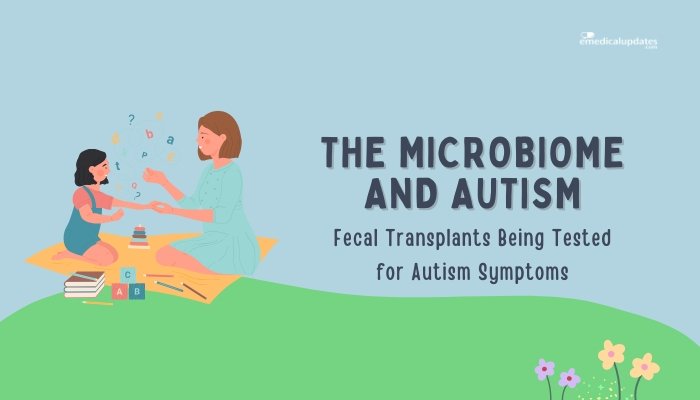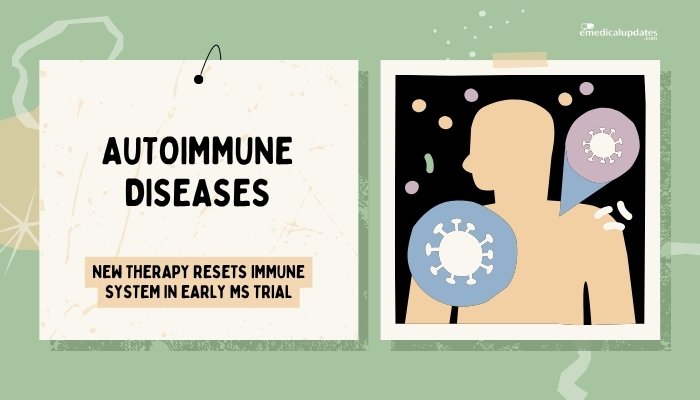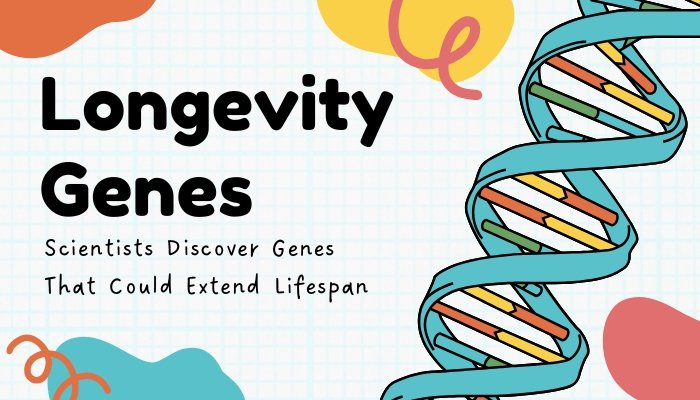Introduction
Autism Spectrum Disorder (ASD) is a complex neurodevelopmental condition characterized by challenges in communication, social interaction, and repetitive behaviors. While it has a strong genetic component, scientists increasingly recognize that environmental factors—like the gut microbiome—may shape how ASD develops or manifests.
One innovative approach under investigation is fecal microbiota transplantation (FMT), a procedure that transfers gut bacteria from a healthy donor into a recipient. Early studies suggest FMT could help certain gastrointestinal and behavioral issues in some people with ASD, although more definitive data are needed.
This article outlines the rationale behind FMT in autism, the findings so far, and what obstacles remain before widespread clinical use.
The Gut-Brain Axis in Autism
Linking the Microbiome to Behavior
Numerous studies indicate that:
- Microbial Diversity: Children with ASD often have distinct gut bacterial compositions compared to neurotypical peers.
- Metabolites and Neuromodulators: Gut bacteria produce short-chain fatty acids and other compounds that influence the nervous system.
- GI Symptoms: Many individuals with autism experience chronic gastrointestinal problems, which could correlate with microbial imbalances.
While correlation is clear, causation remains uncertain—does altered microbiota contribute to ASD symptoms, or does autism predispose individuals to certain diets, stress levels, or medication use that shape the microbiome?
Why FMT?
Fecal microbiota transplantation (FMT) can restore gut flora diversity. It has proven effective in treating recurrent Clostridioides difficile infections. The hypothesis is that introducing balanced gut microbes might improve GI health and, by extension, modulate certain ASD-related behaviors or cognitive processes through the gut-brain axis.
How FMT Is Conducted
Screening and Preparation
- Donor Selection: Donor stool must come from healthy individuals extensively screened for infections, parasites, or undesirable microbes.
- Recipient Readiness: Patients typically undergo GI evaluation, and sometimes bowel cleansing or mild antibiotic pretreatment, to help the new microbes settle.
Administration Methods
- Oral Capsules: Encapsulated frozen stool or purified bacterial consortia.
- Colonoscopic or Endoscopic Delivery: Direct instillation into the lower or upper GI tract.
- Enema: Home or clinic-based method, though less controlled.
Which route works best in autism is still debated, with some small trials preferring colonoscopic approaches.
Clinical Evidence So Far
Initial Trials and Case Reports
A landmark pilot study published a few years ago involved a small group of children with ASD and moderate to severe GI problems:
- Protocol: Participants received two weeks of antibiotic pretreatment, bowel cleanse, then an FMT regimen over several weeks.
- Results: Improvements reported in GI symptoms and modest gains in certain behavioral assessments. Some benefits persisted when rechecked months later.
- Limitations: Absence of a placebo control, small sample size, short follow-up. Researchers stress the need for larger, blinded trials.
Ongoing Research
Currently, multiple universities and clinics are replicating or refining FMT protocols, investigating dosing frequency, donor matching, and possible long-term effects. Some have introduced more rigorous designs—randomized, placebo-controlled setups—to validate results. Preliminary outcomes remain varied but encouraging enough to warrant continuing exploration.
Potential Benefits and Challenges
Possible Advantages
- GI Symptom Relief: Reduced constipation, diarrhea, abdominal pain that often burden individuals with ASD, potentially improving daily comfort.
- Behavioral and Emotional Shifts: In some cases, better GI health may correlate with calmer behavior or increased sociability, though direct causation is unclear.
- Non-Pharmacological Alternative: FMT might circumvent medication side effects, such as sedation or metabolic issues associated with certain autism-related treatments.
Risks and Unknowns
- Infection: Improperly screened stool can transmit pathogens. Strict screening and standardization can mitigate this risk but add complexity.
- Long-Term Effects: Altering the gut microbiome drastically may have unpredictable consequences—researchers need extended follow-up data.
- Individual Variation: Each person’s microbiome is unique. Not everyone may respond similarly to the same donor microbiota.
Practical Considerations
Professional Oversight
Because of the complexities and potential risks, FMT for ASD should only be conducted in research or clinical trial settings. Licensed practitioners must guide the process, ensuring:
- Proper Donor Screening
- GI Pre-Treatment
- Post-Procedure Monitoring
Combining with Other Interventions
Families should not view FMT as a standalone “cure.” Any potential gains may be amplified or stabilized when integrated with established therapies: behavioral interventions, dietary management, and educational support.
The Path Forward
Larger, Controlled Trials
Definitive data require:
- Blinded, Placebo-Controlled Designs: Minimizing bias, establishing robust cause-effect links.
- Diverse Cohorts: Enrolling participants across different ASD severities, ages, comorbidity profiles.
- Consistent Protocols: Standardizing donor screening, stool processing, and administration routes.
Personalized Approaches
Better understanding of an individual’s baseline microbiome might tailor donor selection. Ongoing research in “precision FMT” attempts to match or adapt donor profiles to each recipient’s microbial gaps.
Potential for Microbiome-Derived Therapies
Instead of full stool transplants, labs may isolate beneficial bacterial strains or produce synbiotic formulations, aiming for targeted gut rebalancing without the complexities of human fecal matter.
Frequently Asked Questions
- Can FMT cure autism?
- No. Autism is a complex neurodevelopmental condition. Early findings suggest possible GI and behavioral improvements, but not a cure.
- Are at-home fecal transplants safe?
- Generally discouraged. Professional oversight ensures pathogen screening and correct administration. Doing it DIY is risky.
- Does everyone with autism have GI issues?
- Many do, but not all. FMT’s relevance might be strongest for those with significant digestive symptoms or dysbiosis.
- Is FMT legally permitted for autism?
- Off-label usage in some places, though typically restricted to research or severe cases. Regulations vary by country.
- What about store-bought probiotics?
- While certain probiotics help mild GI concerns, they’re less intensive and personalized than FMT. They may assist but are no substitute for thorough medical therapy.
Conclusion
The link between gut microbiota and ASD has spurred investigations into fecal microbiota transplantation for potential symptom relief. While limited studies suggest some improvements in GI discomfort and possibly modest positive shifts in behavior or cognition, FMT for autism remains experimental. Ongoing trials must clarify effectiveness, refine protocols, and ensure safety to guard against infection risks or unintended consequences.
Ultimately, if proven safe and consistently beneficial, FMT or related microbiome-based therapies could complement behavioral and educational supports, delivering a more holistic approach to helping individuals with autism thrive. For now, families interested in this avenue should consult specialists and watch for reputable clinical studies to gather strong, peer-reviewed evidence guiding responsible practice.
References
-
- Kang D-W, et al. (2017). “Microbiota transfer therapy alters gut ecosystem and improves gastrointestinal and autism symptoms.” Microbiome.
-
- Grigoryan L, et al. (2021). “Fecal microbiota transplantation for GI and neurological symptoms in autism: a review.” J Pediatr Gastroenterol Nutr.
-
- Bernaola N, et al. (2022). “Probiotics, prebiotics, and fecal microbiota transplantation in autism spectrum disorder.” Curr Pharm Des.
-
- CDC (2023). “Autism spectrum disorder (ASD) data and statistics.”





